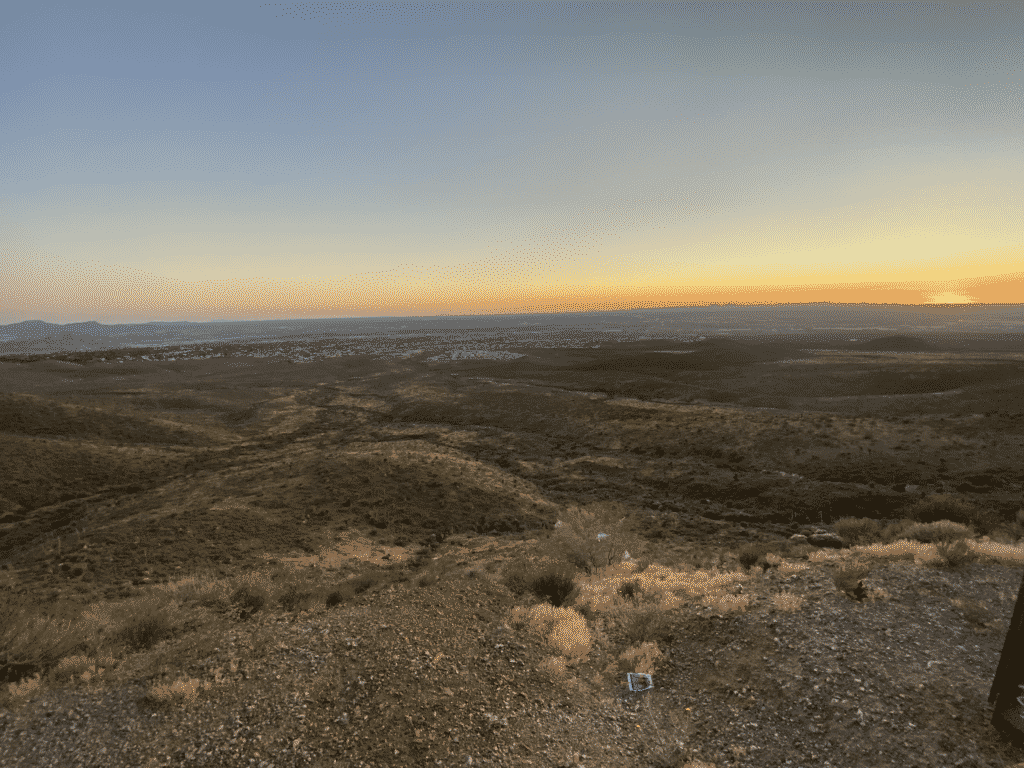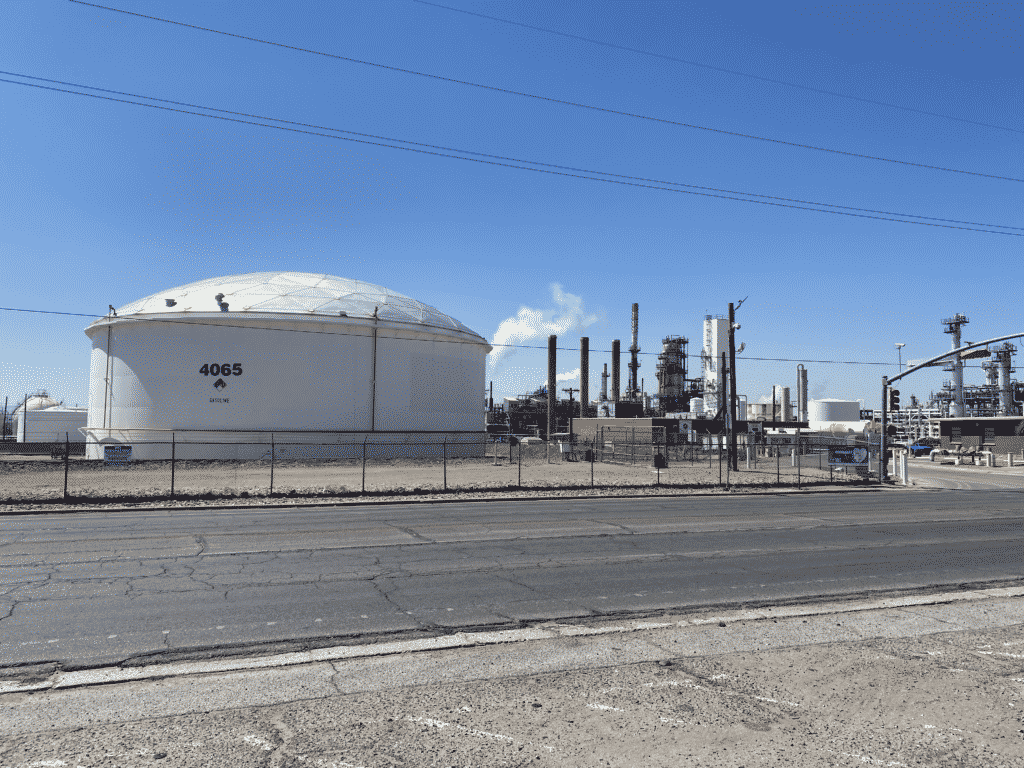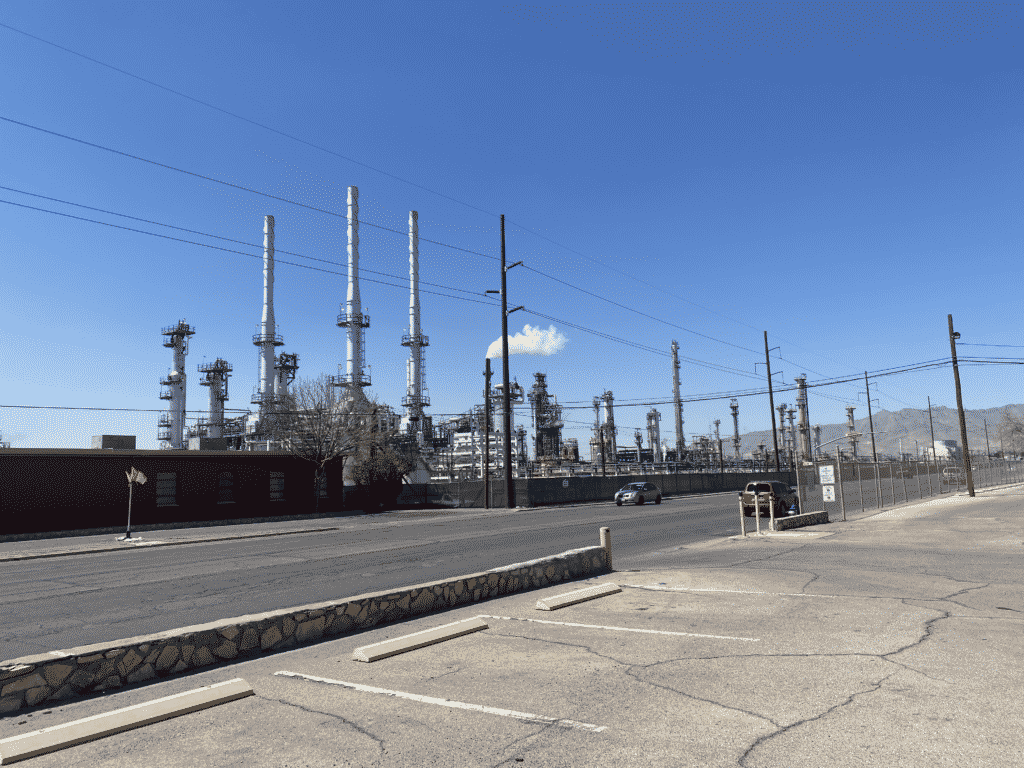
El Pueblo Unido Jamás Sera Vencido (The People United will Never be Defeated)
By Alyssa Rae Garza
Alyssa Rae Garza is a 2022 Winter Fellow at Green 2.0 and is currently pursuing their master’s degree in sociology at the University of Texas in El Paso. They developed a passion for climate justice after learning about environmental injustices in their hometown. Alyssa participates and learns from local grassroots coalitions and movements while applying an intersectional and jotería-muxerist (queer-Chicana/Latina/Latinx) lens to shape community organizing practices.
When I was 5-years-old, my mother told me the nearby refinery was a cloud factory due to the white smog it emitted. I didn’t know it at the time, but the “cloud factory” was anything but harmless and has been polluting my community and nearby regions for decades. This particular refinery, one out of many, is visible from the main highway, nearby homes and businesses, and poisons the lungs of families and individuals.
I was raised in Piro, Lipan Apache, Tigua, Sumas, Tampachoa, and Mescalero Apache territories commonly known as El Paso, Texas, a beautiful borderland region. I live less than 20 minutes away from the Paso del Norte International Bridge, which crosses the Rio Grande and connects the United States to Mexico through the border cities of El Paso, Texas, and Ciudad Juárez, Chihuahua.

I am continuously uplifted by my community, immersed in my heritage, and connected to my ancestors. However, borderland areas are vulnerable to militarization of the border, labor exploitation, and unfriendly outsiders who view the area as an easy target to cause and enforce injustices in majority-minority, binational, poor, and Spanish-speaking communities. The latest battle is centered around air quality in El Paso. I was introduced to El Paso’s air quality issues through local organizations and coalitions led by people of color, particularly queer individuals and women, and Latinx/e-youth. Through this work I discovered that the El Paso and Las Cruces area was ranked 13th for worst ozone pollution nationwide and emitting unhealthy and high levels of air pollution one out of every three days in 2021.
The region’s dangerous and unhealthy air quality can be attributed to various factors, including oil refineries, natural gas units, interstates that segregate neighborhoods, and vehicular congestion from long lines at the international bridge. These sources have led El Paso to become an area that does not meet National Ambient Air Quality Standards (NAAQS) known as non-attainment. Despite this, the Texas Commission on Environmental Quality (TCEQ) repealed the Environmental Protection Agency’s (EPA) decision that was intended to regulate new sources of pollution. TCEQ’s interference allows marginalized communities to continue to be exposed to dangerous levels of air pollution.

Due to El Paso’s unique geographic location, I am familiar with people politicizing borders, implementing xenophobic policies, and enforcing white supremacy ideologies. The TQEC’s argument for loosening air quality standards and attempting to allow El Paso to be exempt from emission restrictions is that most of the pollution stems from Ciudad Juárez, a city located across the border in Mexico. This is untrue and as this article states, Juarez’s activities are not the major source for this region’s poor air quality. If El Paso is exempt from following federal regulations, it will allow companies to pollute with no accountability, harming my hometown area and our neighbors across the border in Mexico because pollution knows no borders.
I want air quality standards to be high because companies should be striving to pollute less, and local officials should be phasing out fossil fuel production and focus on transitioning to renewable energy sources. Standards must be strong enough so companies are not able to pollute without recourse. Citizens deserve clean and safe air not just in El Paso, but all communities in neighboring cities that include Las Cruces, Chaparral, and Juárez.
I have witnessed community solidarity through individuals coming together to hold refineries, city councils, and local and state officials accountable to ensure our communities are being treated with care and respect. It is crucial that the climate justice movement includes voices from all geographic locations and equally recognizes the intersection between the climate crisis, borders, and people of color. This is the time to demand more and my community taught me el pueblo unido jamas sera vencido (the people united will never be defeated).

For more information on Alyssa Rae Garza, follow on her Twitter @_alyssagarza.